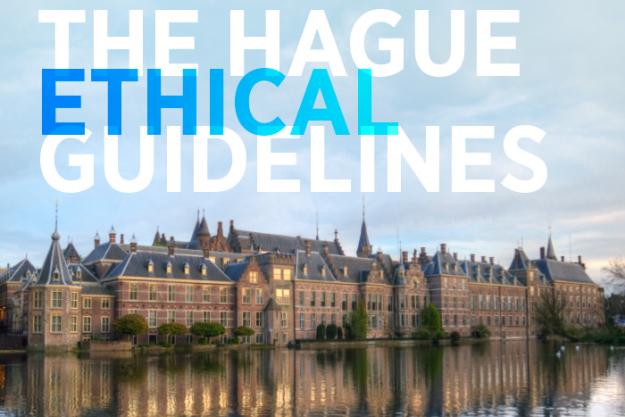
The International Council of Chemical Associations (ICCA) has endorsed The Hague Ethical Guidelines
THE HAGUE, Netherlands – 23 May 2018 – The International Council of Chemical Associations (ICCA) has endorsed The Hague Ethical Guidelines, a set of principles developed with facilitation by the Organisation for the Prohibition of Chemical Weapons (OPCW) to guide the responsible practice of chemistry under the norms of the Chemical Weapons Convention (CWC).
ICCA – the leading voice for the global chemical industry and OPCW’s key chemical industry stakeholder – stated that it had carefully analysed the Guidelines and sent them to its members “with the recommendation that they take note of them, disseminate them further, and reference them on their websites”.
Companies that comprise ICCA account for over 90% of the approximately €4 trillion in annual global chemical sales worldwide.
“The OPCW has been encouraging stakeholders in the Convention to become advocates of The Hague Ethical Guidelines. ICCA’s decision to endorse and disseminate the Guidelines to all its member companies will significantly increase their global reach,” expressed Director of OPCW’s Office of Strategy and Policy, Ms Veronika Stromsiková.
The OPCW and ICCA established a formal relationship in 2015 to enhance communication and collaboration with the chemical industry regarding the implementation of the Convention. ICCA representatives also participated in the formulation of The Hague Ethical Guidelines.
ICCA is the second major stakeholder to offer backing to the OPCW’s set of ethical recommendations, following the 2016 endorsement by the International Union of Pure and Applied Chemistry, a leading international scientific federation representing academic and industrial chemists from across the world.
Background
The Hague Ethical Guidelines, originally a German initiative, were developed by scientists and chemistry professionals from 29 countries during two workshops facilitated by the OPCW in 2015.
The core element of the Guidelines is the premise that achievements in the field of chemistry should be used to benefit humankind and the environment. The Guidelines, therefore, seek to promote discussion and responsible conduct among chemical practitioners and decision-makers in academia, industry, civil society and government to guard against the misuse of chemistry.
As the implementing body for the Chemical Weapons Convention, the OPCW oversees the global endeavour to permanently and verifiably eliminate chemical weapons. Since the Convention’s entry into force in 1997 – and with its 192 States Parties – it is the most successful disarmament treaty eliminating an entire class of weapons of mass destruction.
Over 96% of all chemical weapon stockpiles declared by possessor States have been destroyed under OPCW verification. For its extensive efforts in eliminating chemical weapons, the OPCW received the 2013 Nobel Peace Prize.
